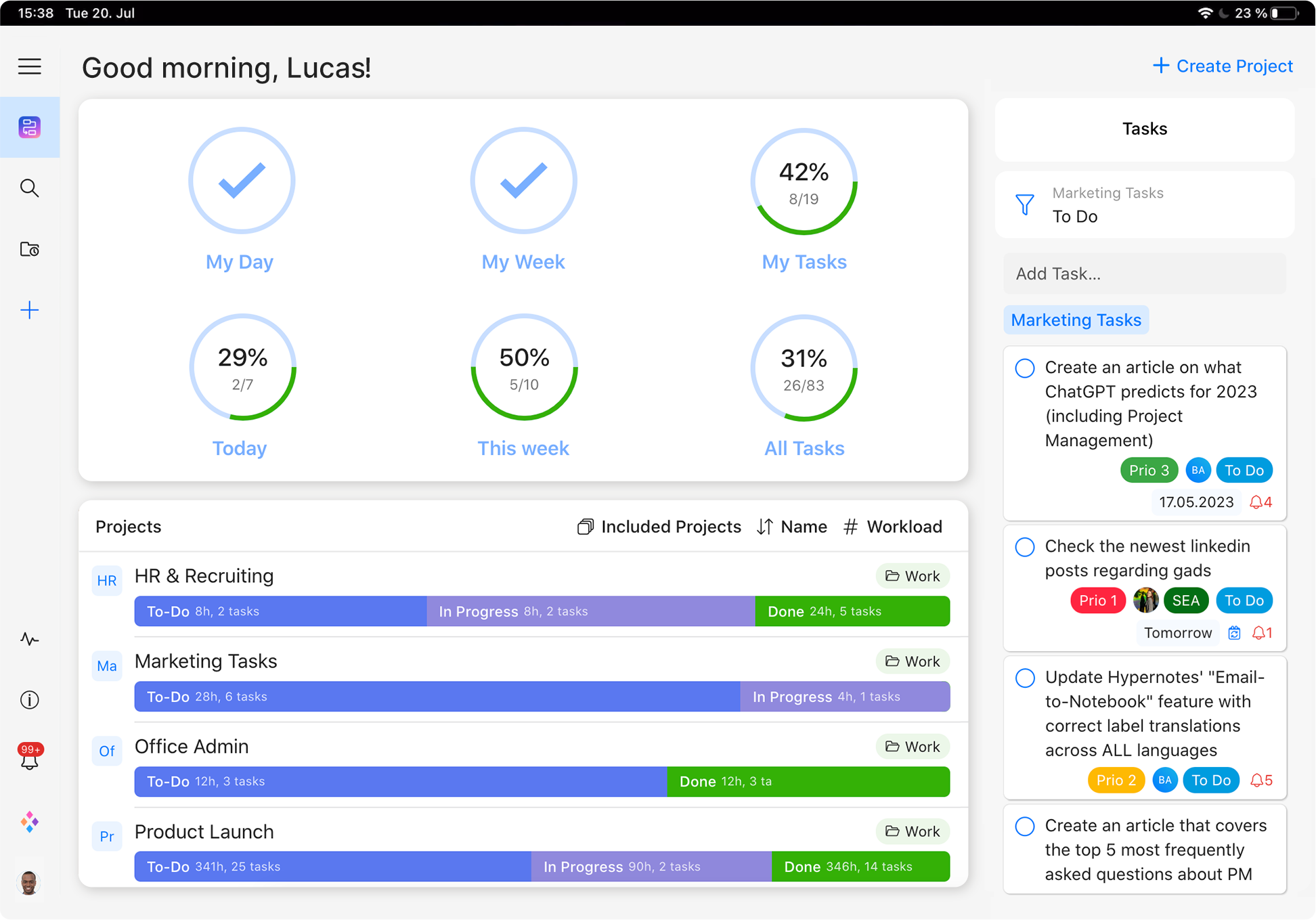The Art of Effective Team Management
How to manage a team and make a lasting impact
Being in charge of a team can be a rewarding gig, but it doesn’t come easy. Imagine being responsible for a group of people you’ve never met before and then being accountable for their development, achievements, and performance — pretty daunting, huh? To make it a less intimidating experience, I’ve put together a few pointers on how you can best achieve effective team management.
The Importance of Team Management
Every business or organization requires team management in order to get things done. Team management refers to the organizing and coordinating of a group of individuals who have a shared objective in completing a task or project. It also involves mitigating risks, problem-solving, and conflict resolution. So, you can imagine that without it, things can go awry.
The importance of effective team management comes as no surprise to anyone whose job it is to manage a team. Not only is it crucial for employee engagement, but it can also improve productivity, which ultimately contributes to business growth and economic benefits.

Team management requires you to bind your team together so that collective goals can be achieved efficiently, and in most cases, more enjoyably. It requires a combination of getting to know the individuals in your team and managing the different personalities and skill sets, and figuring out the best ways targets can be achieved, while keeping in mind the company’s objectives.
What Does Effective Team Management Take?
It takes good management and leadership for effective team management to work. But a team leader can only be as good as their team members, so there really needs to be equal input from both parties.
It’s your job as leader of the team to not only manage your team’s tasks and coordinate the schedule so that deadlines are met, but if you really want to manage your team effectively, you have to also provide guidance and direction.
You also have to strengthen the bonds between the individuals on your team. To do this, you can organize team-building activities and exercises. Organizing team-building activities is a worthwhile investment as it can result in enhanced business skills such as collaboration, communication, and creative problem-solving.
There is an array of activities and exercises to choose from, from sports tournaments to scavenger hunts to simply having lunch together. Whichever activity you do decide to organize, ensure you consider the following tips:
- Set a goal and explain to your team what it is and how it relates to the activity they are about to partake in.
- Schedule the activity during work hours, because it’s something that will benefit the company at the end of the day.
- Consider the capabilities (physical, and psychological) of the participants and make sure you select an activity that accommodates everyone.
- Friendly competition should be encouraged, but remind your team that the experience is more about developing collaboration and communication skills.
- Collect feedback once the activity is over. This will be useful information that will advise you on how successful the experience was and what to do for your next team-building day.
Effective Team Management Strategies
Rounding up your team and then telling them what to do one by one could possibly work (emphasis on the word ‘possibly’), but it isn’t the most practical way to get things done. For anyone who wishes to apply effective team management, you’ll need a strategy in place.
Different teams will require different strategies. If you’re managing a team of 50 individuals in a corporate enterprise, your strategy is going to look a little different to someone who’s managing a small team of five in a startup company. Whatever your end goal is, your role as the team leader is to essentially motivate your team to work together to achieve the goal in a timely manner. How you get your team motivated and to work together is where the difference in strategies lies.
A strategy doesn’t have to be convoluted or complex, all it is is a plan of action, tailored to achieving a specific goal or set objectives. But while strategies will differ depending on the company and the team, they should at least cover the following three elements:
- Invest in team development through training and team building.
- Encourage a communicative culture so that information is transparent and everyone is kept in the loop.
- Reward employees who do outstanding work and also display exceptional behaviour.
When creating the strategy, remember to include your team. Sharing the ability to contribute ideas and opinions toward the team’s overall purpose is a good start to achieving effective team management. It will make your team members feel valued and that their position within the team is appreciated.

How to Improve Team Management Skills
Your job as a team leader is to not only ensure your team meet their goals and objectives within the required criteria and time frame but to also ensure that you’re accommodating the needs of the different individuals involved so that they can do the best job that they can. It can be a tough gig, so to help make things a little easier, here are 7 tips that can help you to improve your team management skills:
1. Develop relationships
Effective team management relies a lot on teamwork and collaboration, and these two things stem from having good relationships with members of your team. The fact that you all have to work with each other closely on a regular basis is reason enough to have to get along, but implementing methods for successful collaboration is important for the team to sustain.
Getting to know the different characters in your team and how they are wired will greatly assist you in knowing how to motivate them, the things to avoid, and what will bring out the best in them.
2. Foster team unity
Not only should you establish relationships with your team members, but you should also encourage them to do so with each other. While they don’t have to be best friends, it is worthwhile for them to get to know each other on a more casual and personal level. People who get along and have respect for each other will generally work better together. And if there is cohesion within your team, it will make your job as a team manager a lot easier.
3. Use team management tools
A team is only as good as its resources. No matter the profession, every worker needs the right tools in order to do the best job. Tools such as task and project management software and chat apps can streamline collaboration and communication and result in more effective team management. You have an array of options to choose from, from single-focused software to all-in-one solutions. These tools are designed so that you can share work with your colleagues easily, communicate instantaneously, and track the progress of your tasks so that you are on time to meet deadlines.

Discover the ultimate project management tool.
Sign up for free today!
4. Know how to keep good employees
Keeping your best employees is something every manager should know how to do. If a highly talented employee knows that there’s a better offer out there, there’s a high chance they’re going to take it. Ensure they’re not being underpaid. Give them the salary they deserve. Money is a sure-fire incentive for making employees stay with a company and if they’re excelling at their job, then the amount of their pay should be justified.
Another way to keep your good team members is to ensure they’re being challenged. Being stagnant is the stuff of nightmares for hard-working and motivated individuals, so to keep them stimulated and interested, make sure the work stretches their skills and abilities.
5. Admit your mistakes
Making mistakes is an inevitable part of being human and your team are aware of that. Instead of trying to cover up a mishap, it’s always best to admit when you’ve done something wrong. Not only will it make rectifying the situation easier, but your team will appreciate the humility and respect you even more. Lastly, it can also influence them to do the same should they find themselves in a similar situation.

6. Set an example
Regardless of your position, everyone should conduct themselves courteously and with dignity at work. But when you’re in a position of authority, you are more in the spotlight so it becomes more imperative to behave accordingly. Setting an example is one of the best ways to communicate your expectations of how you want your team to act. So it goes without saying that you should be conscious of how you interact with people and how you conduct yourself in the office because there will be people around you that may take a cue from your behaviour and think it’s appropriate.
7. Learn from others
A good leader doesn’t just shell out orders and assert their agendas. Instead, they give their team the chance to communicate their ideas and suggestions. Listening to what your team have to say gives you the opportunity to learn from them as you’ll be exposed to all different kinds of viewpoints and insights. Instead of constantly telling your team how to do things, creating a space for idea exchange and discussion allows them to come up with various solutions and enhance their problem-solving skills. Plus, you may acquire knowledge that you would’ve never thought of yourself!
Team Management Tips: What Not to Do
Now that you know how to improve team management skills and what it takes to lead a team effectively, here are some tips on what not to do:
Don’t micromanage
Micromanaging is one of the most detrimental habits a manager can have and a big fat no for effective team management. It is best practice to trust your team to do their job. Leaving your team to do their job without you constantly hovering over their shoulder will not only highlight your confidence in them to do a good job, but it will also give you time to complete your own tasks — a win-win for everyone really. Also, having that level of trust established will enhance the working relationships between you and your team members.
Don’t be unapproachable
One of the worst atrocities you could possibly perform as a manager is not creating an open dialogue with your team. Communication is vital for obvious reasons, but welcoming a two-way conversation where feedback is discussed can do wonders for your team’s development and for yours as well as it’s another way to solidify trust. Creating a transparent environment can make your team feel more at ease.
Don’t stick to one managing style
Remember you’ll have different personalities in your team, so how you deal with one person may not be the best way to approach another. For example, there will be individuals who may not take constructive criticism as well as others, so adapt your approach when providing feedback. Applying diversity to your managing style is the key to tackling this. You have to be consistent while using different approaches.
Don’t forget to organize fun activities
Once the whole getting-to-know-everyone period in the beginning ends, that doesn’t mean the fun activities have to. Remember that team bonding is a constant exercise, and arranging activities for your team to do together from time to time can boost team morale. Having happier employees is something that will benefit everyone, not only will your team members enjoy coming to work, but studies have shown that we are inclined to work harder when we are happy.
Final Thoughts
Effective team management is no easy feat, but it is certainly achievable. You have to appreciate the importance of team management, have a strategy in place, improve on your team management skills, and remember the things not to do. You also have to keep in mind that a leader is as good as their team and vice versa.
If yours is a team that is taking it that one step further and collaborating with another team, here are some tips on how you can make it work.
Cheers,
Dinnie and the Zenkit team
FREE 20 MIN. CONSULTATION WITH A PROJECT MANAGEMENT EXPERT
Wanna see how to simplify your workflow with Zenkit in less than a day?
Book a Live Demo



